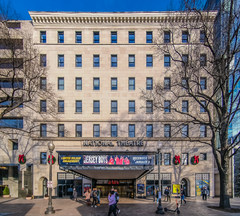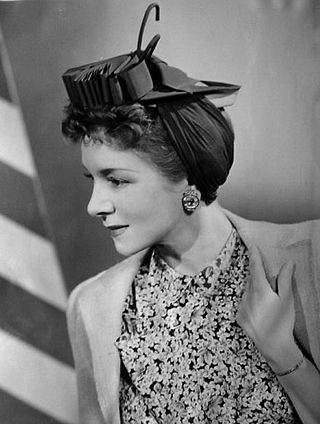
Helen Hayes MacArthur was an American actress whose career spanned eighty-two years. She eventually received the nickname "First Lady of American Theatre" and was the second person and first woman to have won an Emmy, a Grammy, an Oscar, and a Tony Award. She was also the first person to win the Triple Crown of Acting; to date, the only other people to have accomplished both are Rita Moreno and Viola Davis. Hayes also received the Presidential Medal of Freedom, America's highest civilian honor, from President Ronald Reagan in 1986. In 1988, she was awarded the National Medal of Arts.

Porgy and Bess is an English-language opera by American composer George Gershwin, with a libretto written by author DuBose Heyward and lyricist Ira Gershwin. It was adapted from Dorothy Heyward and DuBose Heyward's play Porgy, itself an adaptation of DuBose Heyward's 1925 novel of the same name.

Ethel Barrymore was an American actress and a member of the Barrymore family of actors. Barrymore was a stage, screen and radio actress whose career spanned six decades, and was regarded as "The First Lady of the American Theatre". She received four nominations for the Academy Award for Best Supporting Actress, winning for None but the Lonely Heart (1944).

Robert Todd Duncan was an American baritone opera singer and actor. One of the first African-Americans to sing with a major opera company, Duncan is also noted for appearing as Porgy in the premier production of Porgy and Bess (1935).

Broadway theatre, or Broadway, are the theatrical performances presented in the 41 professional theatres, each with 500 or more seats, located in the Theater District and the Lincoln Center along Broadway, in Midtown Manhattan, New York City. Broadway and London's West End together represent the highest commercial level of live theater in the English-speaking world.
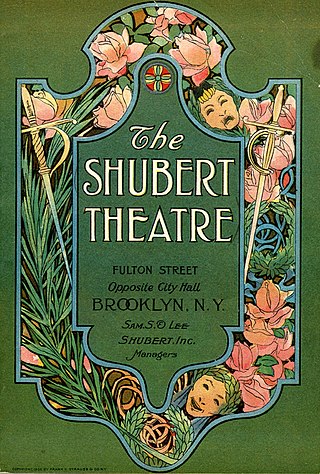
The Shubert Organization is a theatrical producing organization and a major owner of theatres based in Manhattan, New York City. It was founded by the three Shubert brothers in the late 19th century. They steadily expanded, owning many theaters in New York and across the United States. Since then it has gone through changes of ownership, but it is still a major theater chain.

Cheryl Crawford was an American theatre producer and director.
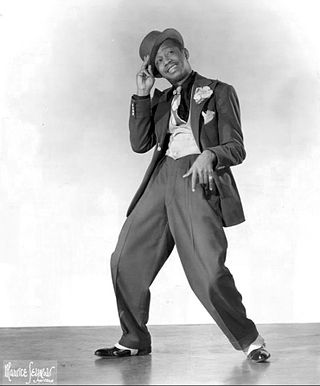
Avon Long was an American Broadway actor and singer.

The Theatre Guild is a theatrical society founded in New York City in 1918 by Lawrence Langner, Philip Moeller, Helen Westley and Theresa Helburn. Langner's wife, Armina Marshall, then served as a co-director. It evolved out of the work of the Washington Square Players.
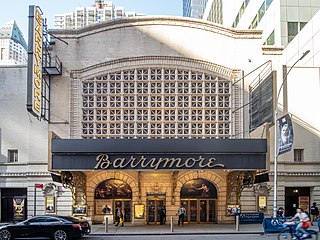
The Ethel Barrymore Theatre is a Broadway theater at 241 West 47th Street in the Theater District of Midtown Manhattan in New York City. Opened in 1928, it was designed by Herbert J. Krapp in the Elizabethan, Mediterranean, and Adam styles for the Shubert family. The theater, named in honor of actress Ethel Barrymore, has 1,058 seats and is operated by the Shubert Organization. Both the facade and the auditorium interior are New York City landmarks.
The American Theater Hall of Fame in New York City, New York, was founded in 1972. Earl Blackwell was the first head of the organization's Executive Committee. In an announcement in 1972, he said that the new Theater Hall of Fame would be located in the Uris Theatre. James M. Nederlander and Gerard Oestreicher, who leased the theater, donated the space for the Hall of Fame; Arnold Weissberger was another founder. Blackwell noted that the names of the first honorees would "be embossed in bronze-gold lettering on the theater's entrance walls flanking its grand staircase and escalator." The first group of inductees was announced in October 1972.
Tazewell Thompson, is an African-American theatre director, the former artistic director of the Westport Country Playhouse (2006–07) in Westport, Connecticut and the Syracuse Stage (1992–95) in New York state. Prior to that he was an assistant director at Arena Stage in Washington, D.C. He is the Director of Opera Studies at Manhattan School of Music.
Rachel York is an American actress and singer. She is known for stage roles in City of Angels, The Scarlet Pimpernel, Les Misérables, Victor/Victoria, Kiss Me, Kate, Sly Fox, Dirty Rotten Scoundrels and Anything Goes. She also has many film and television credits, including her portrayal of Lucille Ball in the CBS biographical film Lucy.
The Nederlander Organization, founded in 1912 by David T. Nederlander in Detroit, and currently based in New York City, is one of the largest operators of live theaters and music venues in the United States. Its first acquisition was a lease on the Detroit Opera House in 1912. The building was demolished in 1928. It later operated the Shubert Lafayette Theatre until its demolition in 1964 and the Riviera Theatre, both in Detroit. Since then, the organization has grown to include nine Broadway theaters, making it the second-largest owner of Broadway theaters after the Shubert Organization, and a number of theaters across the United States, including five large theaters in Chicago, plus three West End theatres in London.
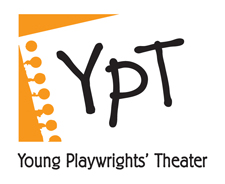
Young Playwrights' Theater (YPT) is a not-for-profit theater arts-based education organization in Northwest Washington, D.C. It provides interactive in-school and after-school programs presenting and discussing student-written work to promote community dialogue and respect for young artists.
Charles Randolph-Wright is an American film, television, and theatre director, television producer, screenwriter, and playwright.

Zev Buffman was a Broadway producer who served as president and CEO of Ruth Eckerd Hall in Clearwater, Florida. He produced more than 40 Broadway shows. He partnered with Elizabeth Taylor to present her in her Broadway debut, The Little Foxes. Buffman was also the co-founding general partner of the NBA champion basketball team the Miami Heat.

Porgy: A Play in Four Acts is a play by Dorothy Heyward and DuBose Heyward, adapted from the short novel by DuBose Heyward. It was first produced by the Theatre Guild and presented October 10, 1927 – August 1928 at the Guild Theatre in New York City. Featuring a cast of African Americans at the insistence of its authors—a decision unusual for its time—the original production starred Frank Wilson, Evelyn Ellis, Jack Carter, and Rose McClendon. Porgy marked the Broadway directing debut of Rouben Mamoulian. The play ran a total of 55 weeks in New York, and the original cast toured the United States twice and performed for 11 consecutive weeks in London.

Bernard Gersten was an American theatrical producer. Beginning in the 1960s through the early 2000s, Gersten played a major role in shaping American drama and musical theatre.
Tony Cisek is an American scenic designer.
